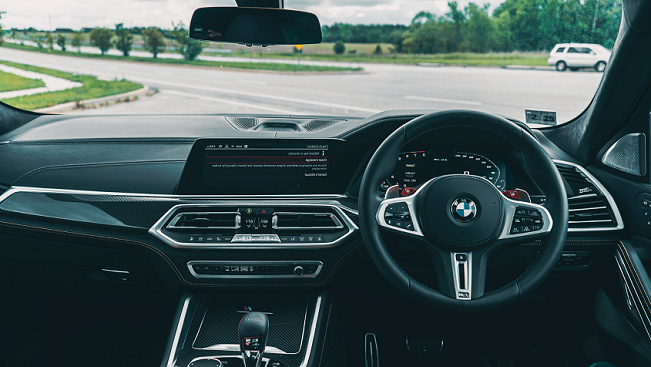
An Overview to Blockchain Technology and the Future Cars
Blockchain is a digital system that keeps records in a secure and clear way. It is changing many industries, including cars. Each record, called a block, is connected to the one before it, making a chain. This setup helps to track changes easily, which adds security and trust.
The car industry uses a lot of data and has complex supply chains, so it will gain a lot from using blockchain. This technology helps with worries about data safety and privacy. As cars become more connected, it’s important to have strong systems to protect private information. Since cars need to share data to improve safety and features, blockchain can build trust among car makers, suppliers, service providers, and customers.
Blockchain technology enhances automotive ecosystem efficiency and trust by providing a secure data exchange platform, enabling smart contracts between manufacturers and service providers.
Enhancing Data Privacy in Vehicles
Blockchain technology can enhance data privacy in the automotive industry by securing sensitive information like personal identification, driving habits, and vehicle diagnostics, as connected vehicles collect more data.
Blockchain technology in vehicles enhances data privacy, secures information exchange, and preserves individual privacy, improving traffic management and safety research.
Streamlining Vehicle-to-Vehicle Communication
At a time when connectivity is a critical issue, the emergence of vehicle-to-vehicle (V2V) communication represents a new step in vehicle technology. V2V system: The integration of blockchain is very important for increasing the number of vehicles.
Blockchain technology improves traffic safety by enabling real-time data sharing between vehicles, enabling proactive responses to road conditions, traffic jams, and accidents, and preventing malicious attacks and data tampering.
Blockchain implementation in V2V communication improves driver navigation by providing real-time route suggestions and enabling vehicles to function as network nodes.
Enabling Transparent Transactions for Smart Contracts
Using blockchain technology in the car industry could change many processes, especially with smart contracts. These contracts work by themselves to carry out and follow the rules set by the people involved, making difficult transactions easier. One important use of smart contracts is for vehicle registration, which usually involves a lot of paperwork and delays.
Blockchain makes vehicle registration easier by providing clear records, lowering fraud, building trust, and cutting out middlemen, which helps save money and time.
The automobile industry’s smart cooperation and transactions are all about the relationship between consumers and consumers! Industry interaction
The Impact on Autonomous Driving
Blockchain technology is revolutionizing autonomous driving by providing a decentralized, immutable ledger to enhance trustworthiness, addressing challenges in maintaining real-time data integrity in driverless vehicles relying on sensors and communication systems.
Blockchain integration improves autonomous driving efficiency by enabling real-time sharing of road conditions, traffic patterns, and accidents, promoting collective intelligence, route optimization, and energy consumption.
Enhancing Vehicle Security
Blockchain integration in automotive systems improves vehicle security by reducing vulnerabilities in traditional systems, safeguarding sensitive data, user information, and critical functions from unauthorized access and manipulation.
Blockchain provides transparency, immutability, and enhanced tracking of vehicle data exchanges, enabling rapid response in cyber incidents due to no single entity controlling all data.
Driving Innovation in Electric Vehicles
Blockchain technology is poised to revolutionize the electric vehicle market, enhancing supply chain management, transparency, traceability, and ethical sourcing, especially in response to the growing demand for EVs.
Blockchain technology enables real-time material tracking, optimizing processes, and mitigating supply shortage risks, thereby stabilizing prices and meeting the increasing demand for electric vehicles in a timely manner.
Challenges and Limitations of Blockchain in Automotive Applications
Blockchain technology has the potential to revolutionize the automotive industry, but scalability is a several challenges and limitations, as it may struggle to maintain rapid processing speeds as transactions increase.
Another key obstacle is the regulatory environment surrounding blockchain technology. The automotive industry operates within a complex web of regulations that vary from region to region. Complying with these regulations requires significant time and financial investment, which poses a challenge to companies looking to integrate blockchain solutions. Industry must work closely with regulators to establish frameworks that support innovation while ensuring consumer safety and data integrity.
Conclusion: The Future of Cars in a Blockchain World
As we explore the intersection of blockchain technology and the automotive industry, it becomes increasingly clear that this innovative solution has transformative potential. Future cars equipped with blockchain are expected to redefine every aspect of vehicle operation, ownership, and data management. Blockchain plays a vital role in this evolution by securely storing and transmitting sensitive driver and vehicle information, ensuring data privacy. This not only protects users but also increases trust in these upcoming technological advancements.
Another important aspect is the role of smart contracts in the future vehicle buying and selling process. Active voice: Automated contracts can simplify transactions and ensure flawless execution of agreements without the need for intermediaries. In this blockchain-powered environment, logistics around ownership transfers, lease agreements, insurance claims, and maintenance records are streamlined, resulting in greater efficiency and transparency.


